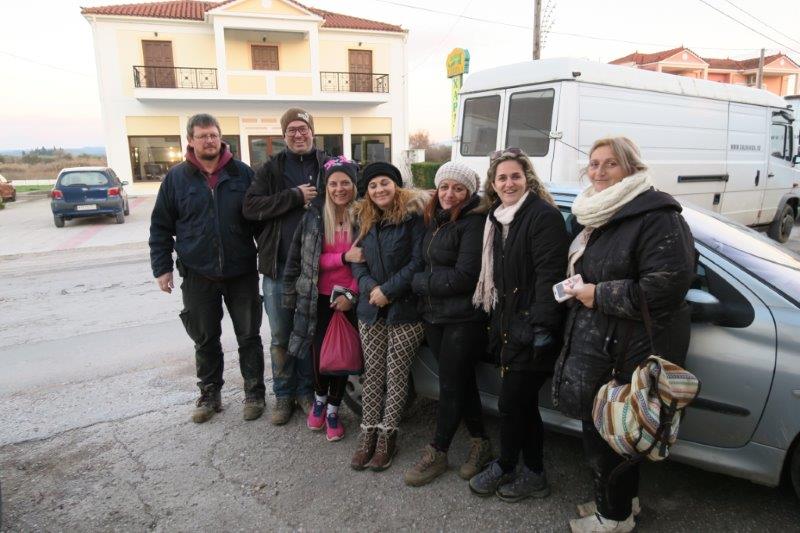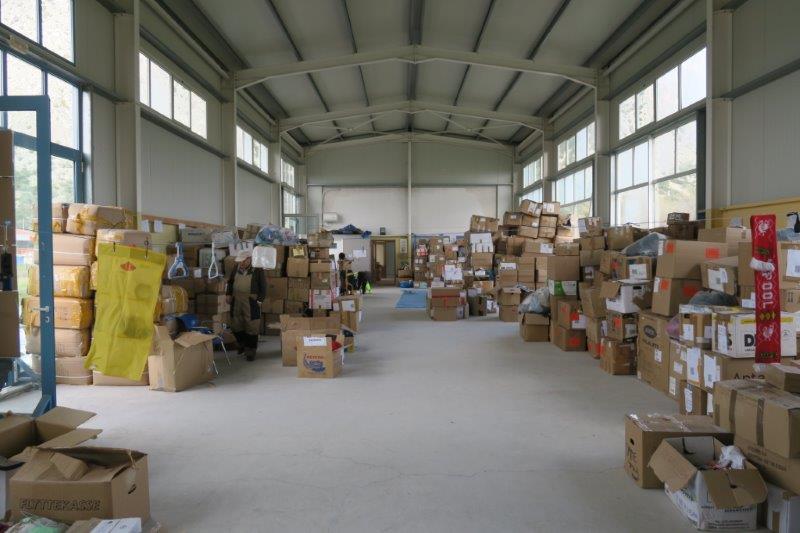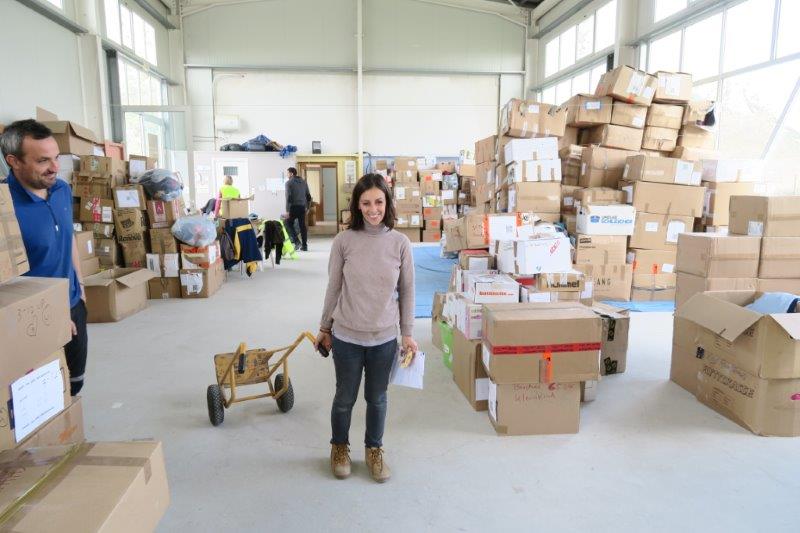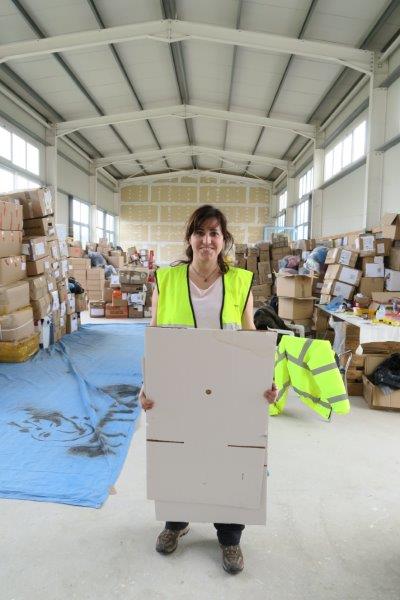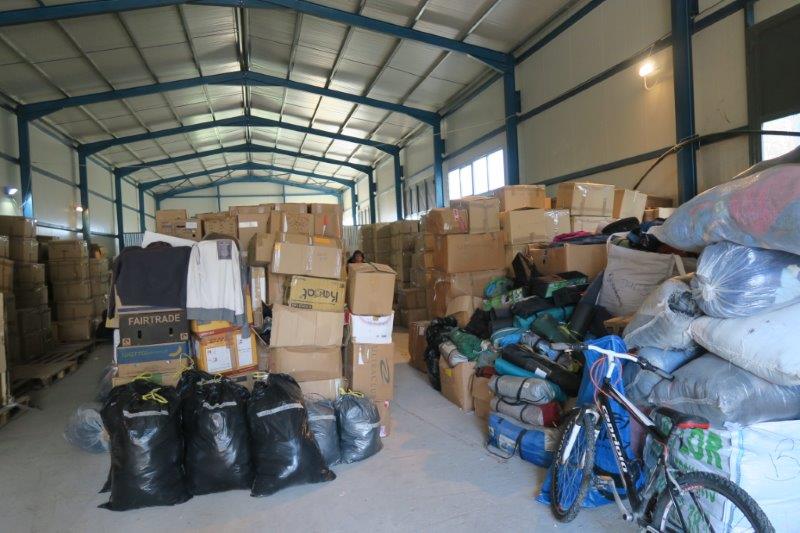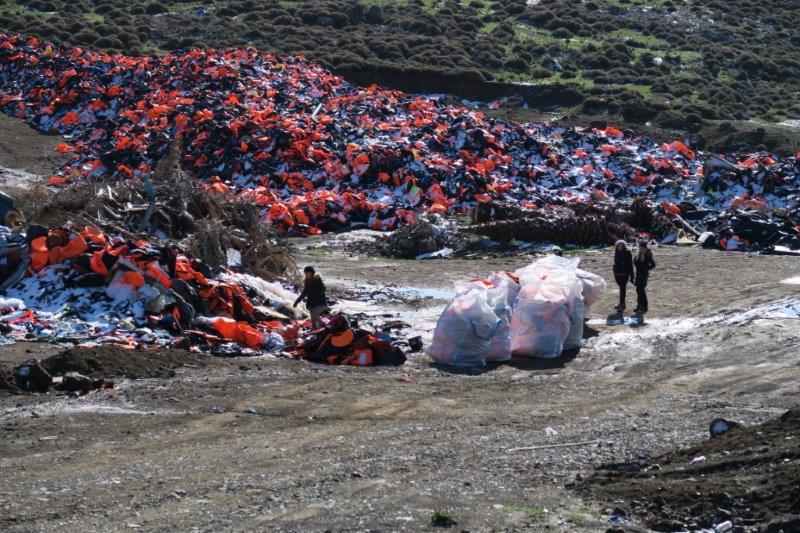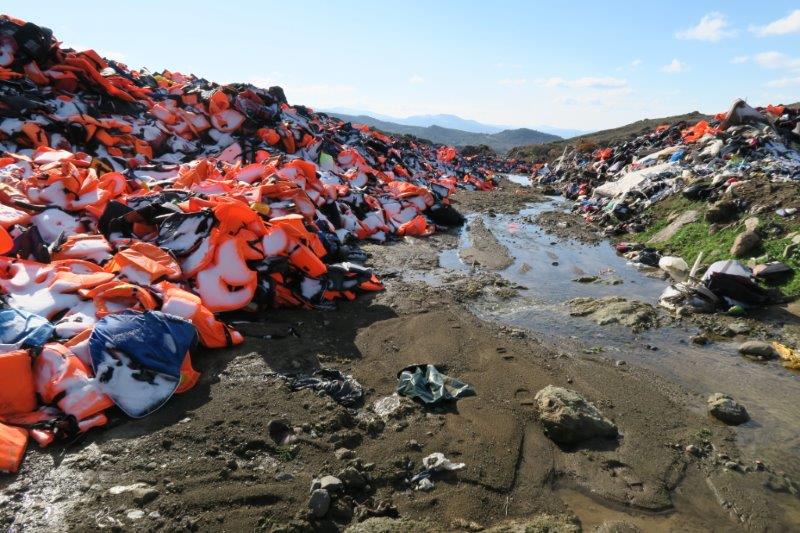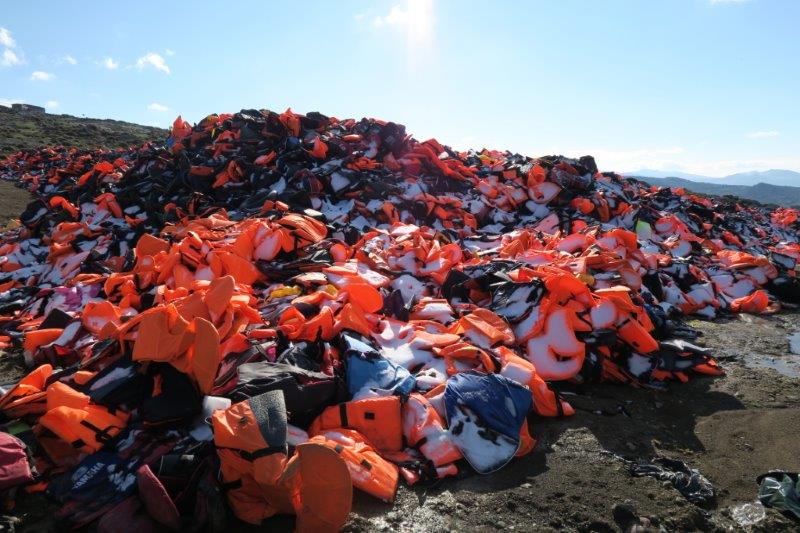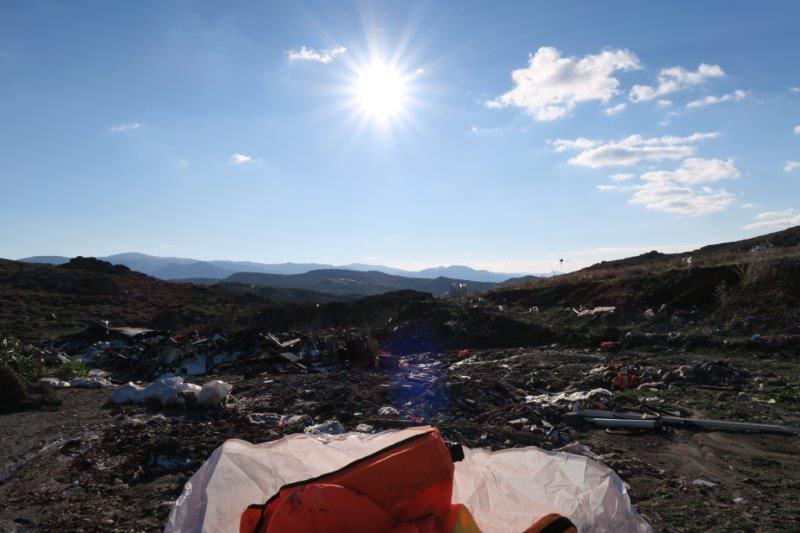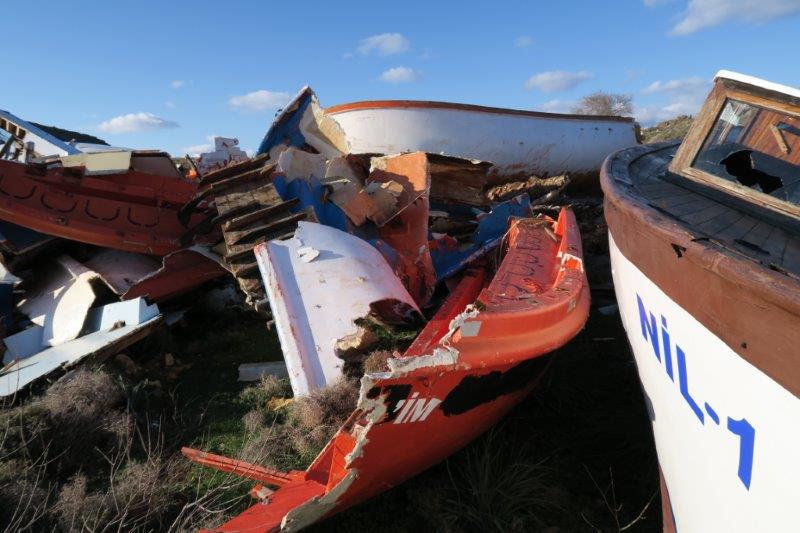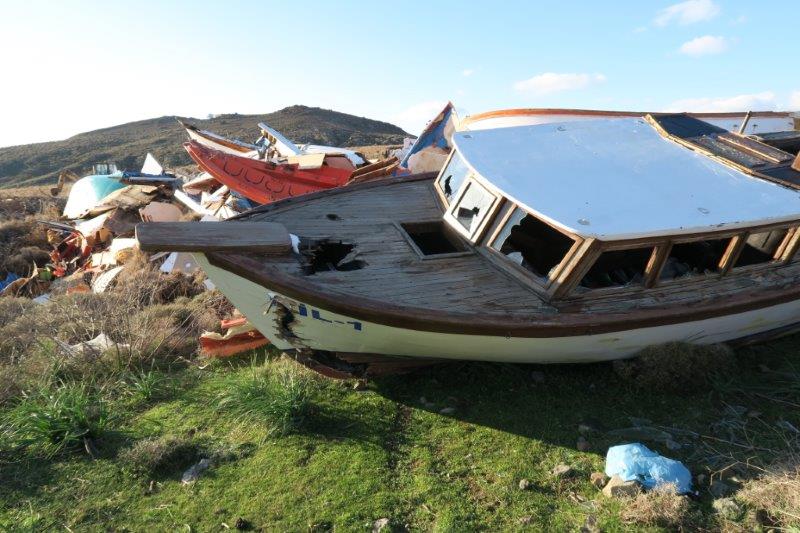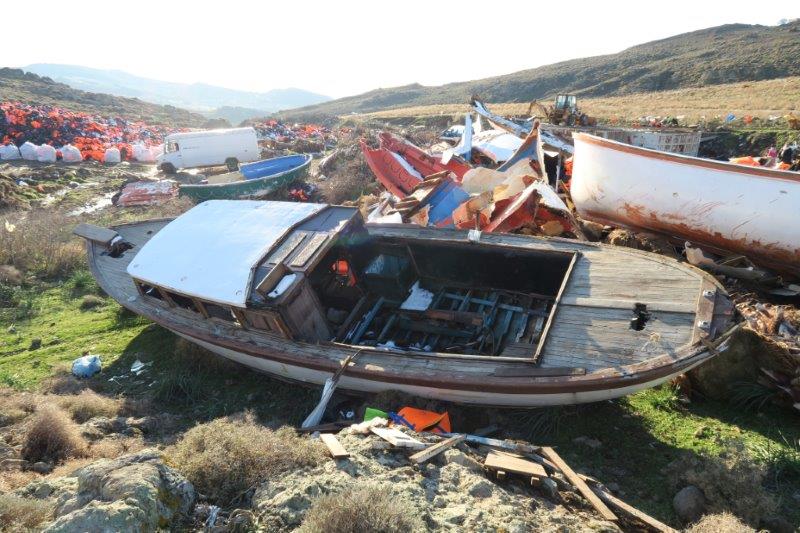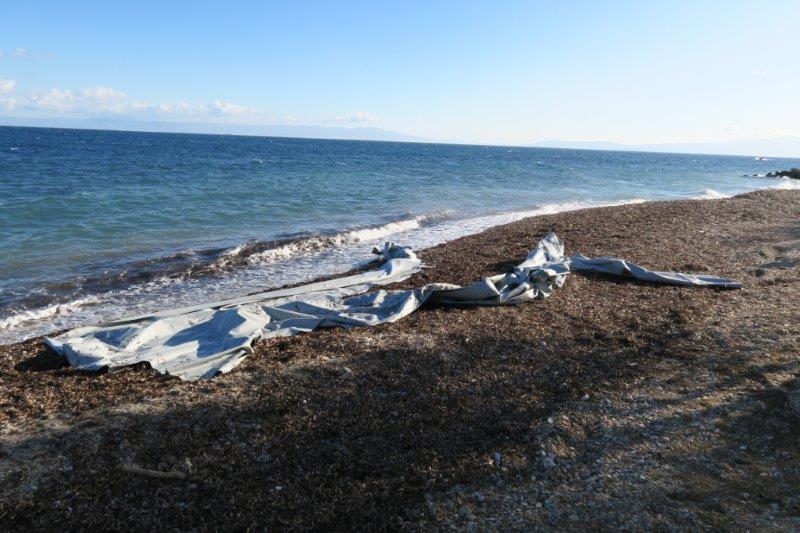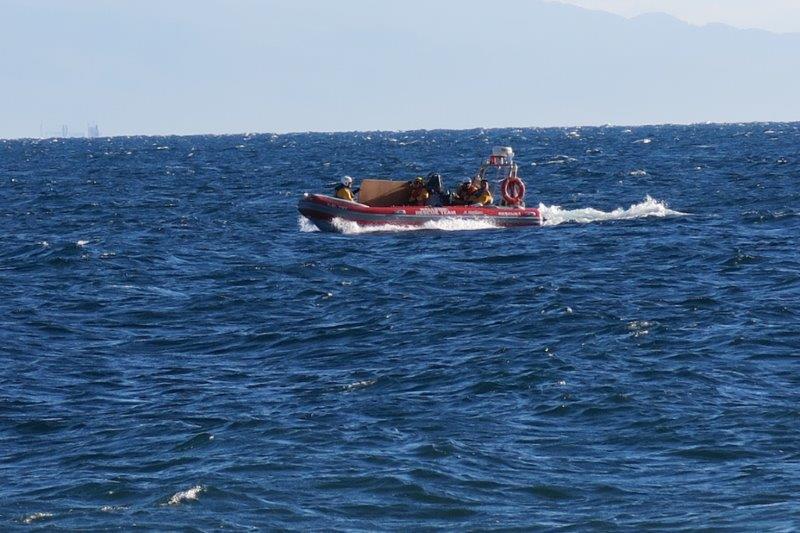Europe and the refugees - crisis or challenge in 2015 - 2016
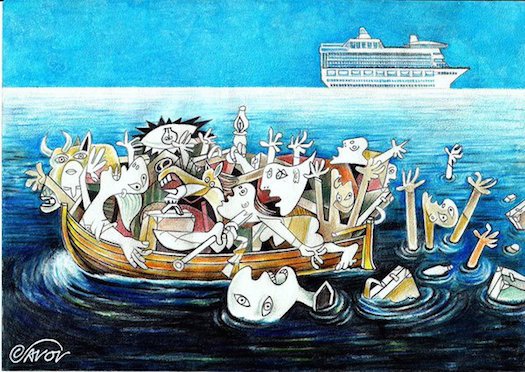
Bulgarian artist
Introduction
Present circumstances do not really allow for sufficient reflections as to what refugees can do once borders not only close, but become sharp ones in a mental sense between those who fear the influx of still more people and those who fled to save their lives. As always in such cases, fate plays out in different ways while many hover between hope and despair. Some are lucky to arrive not only in Berlin, but are put up in a former four star hotel, and not in hangars of the former airport terminal at Tempelhof. Others have to hover out in the cold while waiting their turn for the administration to hear their case. No one really knows their fate until they get finally a legal status for otherwise, if not, they can be flown back to Pakistan, if only to be refused there by the authorities who send them back to Germany. That is an odd example of administrative practice which wishes to pretend at all times to be working according to a set of rules which apply to everyone. But such crude measures of either keeping someone out or turning him or her back have no regard for the philosophical, and therefore ethical principles of man, woman or child, if though they should be the measure of all things.
Naturally there are many other facets to this story of Europe having come under a severe strain with many pulling their weight in a wrong direction. Thus while the refugee challenge has to be faced, Cameroon in the United Kingdom demands reforms or else the UK shall depart according to the planned referendum. It has put the island into another orbit. It was easy to see the strain on the face of Donald Tusk as he held his speech about Europe in Berlin on the eve of the anniversary of 9th of November 1989 when the Berlin Wall came down. Speaking as former Polish Prime Minister in Berlin as President of the Council of Europe, one can say merely that Europe made possible such a historical speech beside the Brandenburg Gate. These things matter but they are hardly noticed in the usual political discourse condemning usually the official side of the story but not really relating to the unofficial version, or to those who have their own story to tell.
Europe at the end of 2015 looks towards another future, insofar as civic society has become very active in some parts. For volunteers have done their utmost to ensure the European response to the refugee challenge stays humane, even though all agree this continent and not only but the whole world is passing through difficult times.
Hatto Fischer
Athens 16.12.2015
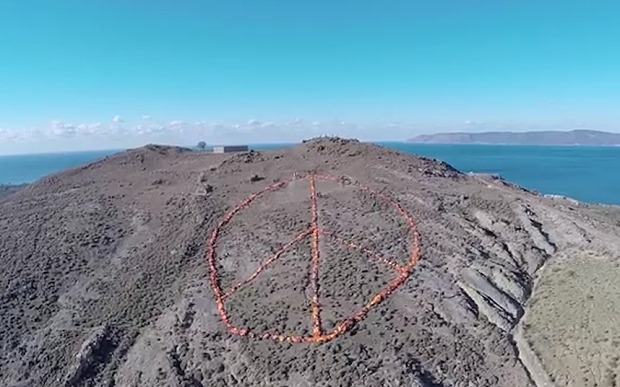
Peace sign by Molivos Photo: Andreas Müller-Hermann
|
Bericht vom 01.12.2015 Ich war vor ca. 3 Wochen auf Lesbos und habe dabei über einen Freund (Spiros Pavlis), der aus Lesbos kommt und dort auch lebt, Constantinos Polychronopoulos kennergelernt. Er hat vor ca. 4 Jahren „O allos Andropos“, eine Hilfsorganisation, die Küchen für die Armen und die Flüchtlinge betreibt, ins Leben gerufen. Der Start war in Athen. Mittlerweile haben sie viele Stellen, an denen gekocht und Essen ausgegeben wird, unter anderem eben auch in Lesbos. Was dort geleistet wird ist unglaublich und wirklich eine fantastische Leistung. Jeden Tag treffen sich freiwillige Helfer in einem Park in der Nähe des Hafens von Mytilini und kochen dort für die Flüchtlinge vom Morgen bis in die Nacht. Das geht so seit dem Sommer. Alles was dort verwendet wird, ist gespendet. Leute kommen vorbei und geben etwas ab, Autos und Lieferwagen fahren vor und laden etwas ab, …. Manchmal kochen sie auch an anderen Stellen auf der Insel. Es werden jeden Tag zwischen 1000 und 2500 Portionen Essen ausgegeben. Ich habe an einem Tag am Abend bei der Ausgabe von zusätzlichen ca. 2500 Essensportionen im Hafen von Mytilini mitgeholfen. Das war sehr beeindruckend und es geht mir immer noch sehr im Kopf herum. Ich war eigentlich in Lesbos, um Sea-Watch, die mit einem neuen Schiff an der Nordküste von Lesbos Flüchtlingen auf dem Meer helfen wollen, zu unterstützen. Hier die Daten, die ich von Constantinos habe: http://oallosanthropos.blogspot.gr/ (Blog) Constantinos ist viel unterwegs und pendelt anscheinend oft zwischen Lesbos und Athen. Ich habe Fotos angehängt. Auf einem sieht man auch einen Teil des Kochteams und Constantinos. Andreas Müller-Hermann |
Report of 01.12.2015 I was roughly three weeks ago in Lesbos and became acquainted thanks to a friend (Spyros Pavlis) who is from Lesbos and lives there, to Constantinos Polychronopoulos. He has started about four years ago „O allos Andropos“, an aid organisation which runs a kitchen for the poor and for refugees. He started it in Athens. In the meantime they have many places where they cook and distribute food, among others as well in Lesbos. What they achieve is unbelievable and really a tremendous achievement. Every day volunteers meet in the park close to the harbour of Mytilini and cook there for the refugees from morning until it gets dark. That is going on since summer. Everything which is used there, has been donated. People pass by and leave something, cars and delivery trucks drive by and unload something... sometimes they cook as well at other places of the island. About 1000 to 2500 portions of food are distributed every day. I have assisted on one day during the evening in the distribution of approximately 2500 portions of food near the harbour of Mytilini. That was very impressive and it still preoccupies me. Actually I was in Lesbos, in order to support Sea-Watch which wants to rescue refugees from the sea with a new ship at the northern coast of Lesbos. Here the information I have from Constantinos: http://oallosanthropos.blogspot.gr/ (Blog) Constantinos is always on the road and travels a lot between Lesbos and Athens. In the photos can be seen a part of the cooking team along with Constantinos. Andreas Müller-Hermann |

Suppenküche / Soup kitchen on Lesbos
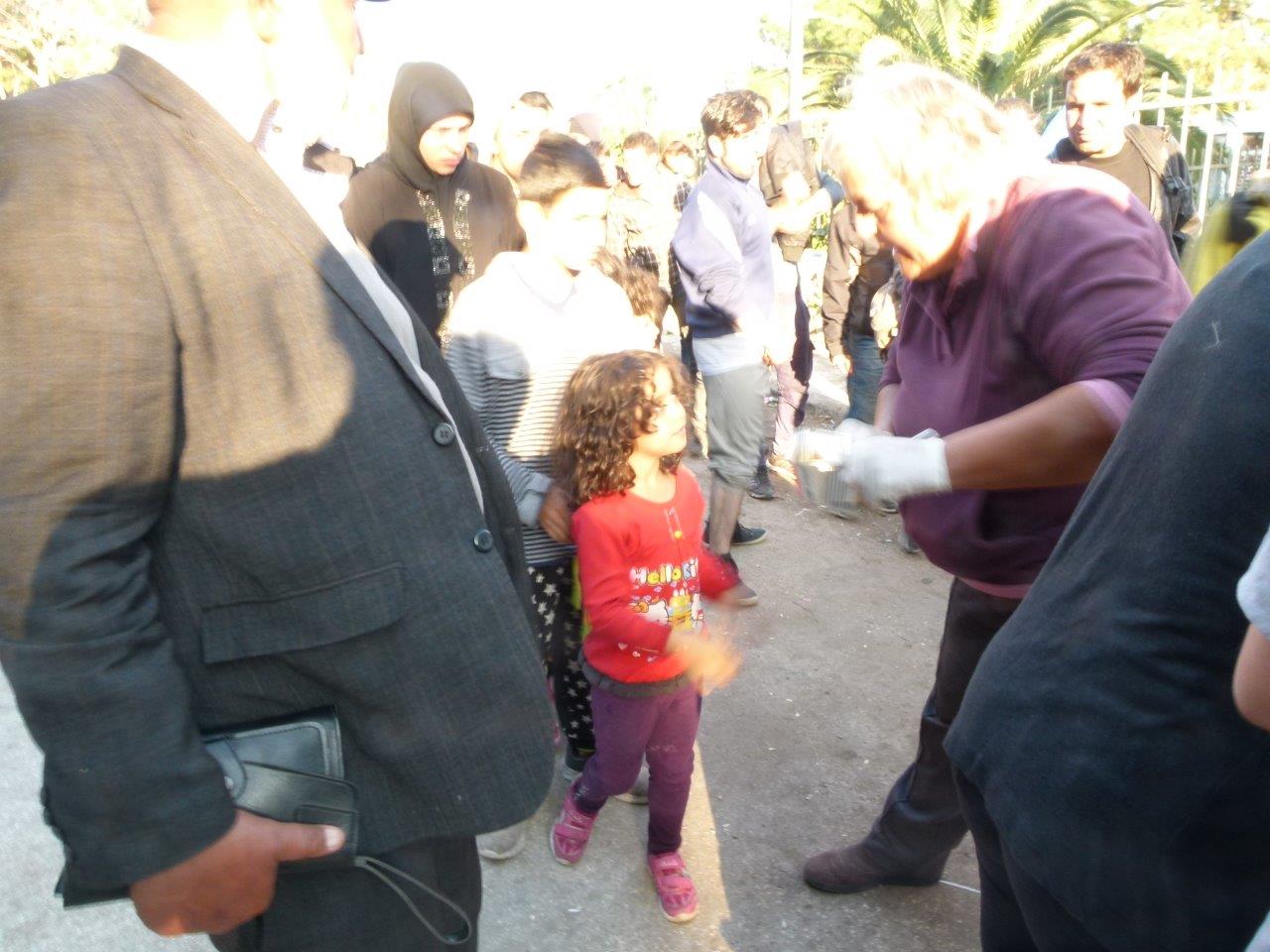
Essensausgabe / Handing out food
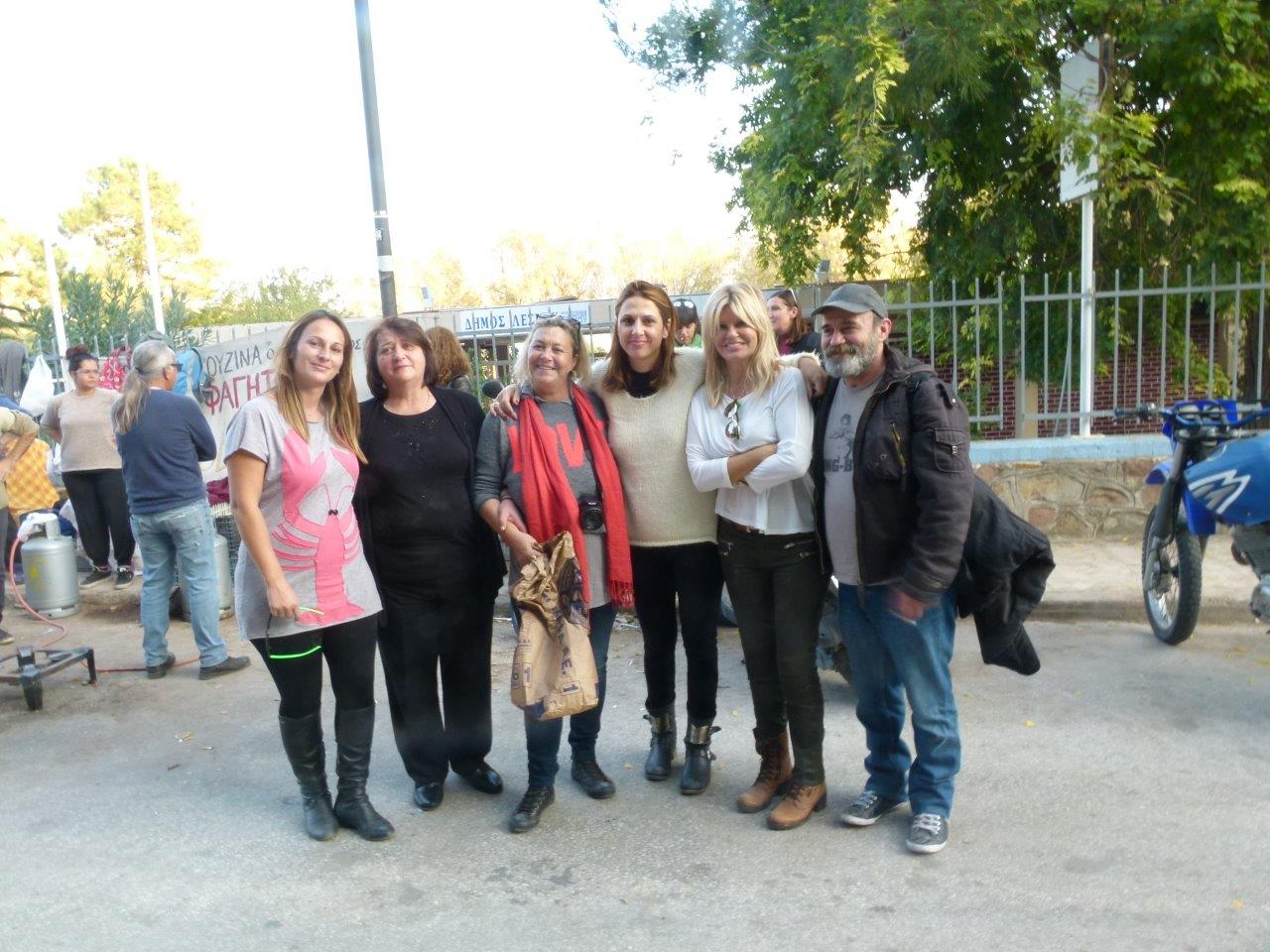
Freiwillige / Volunteers
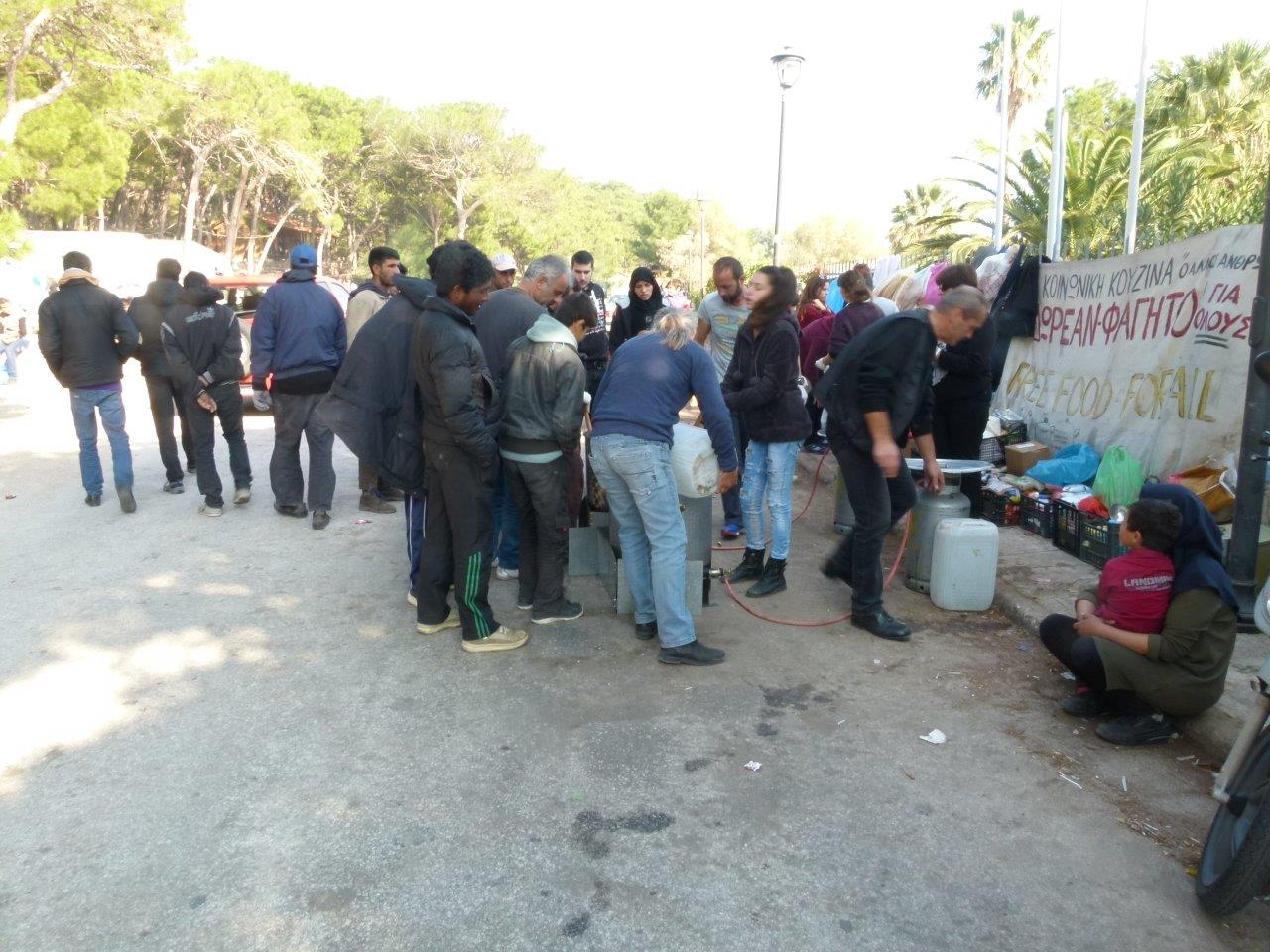
Warten wann dran / waiting for your turn
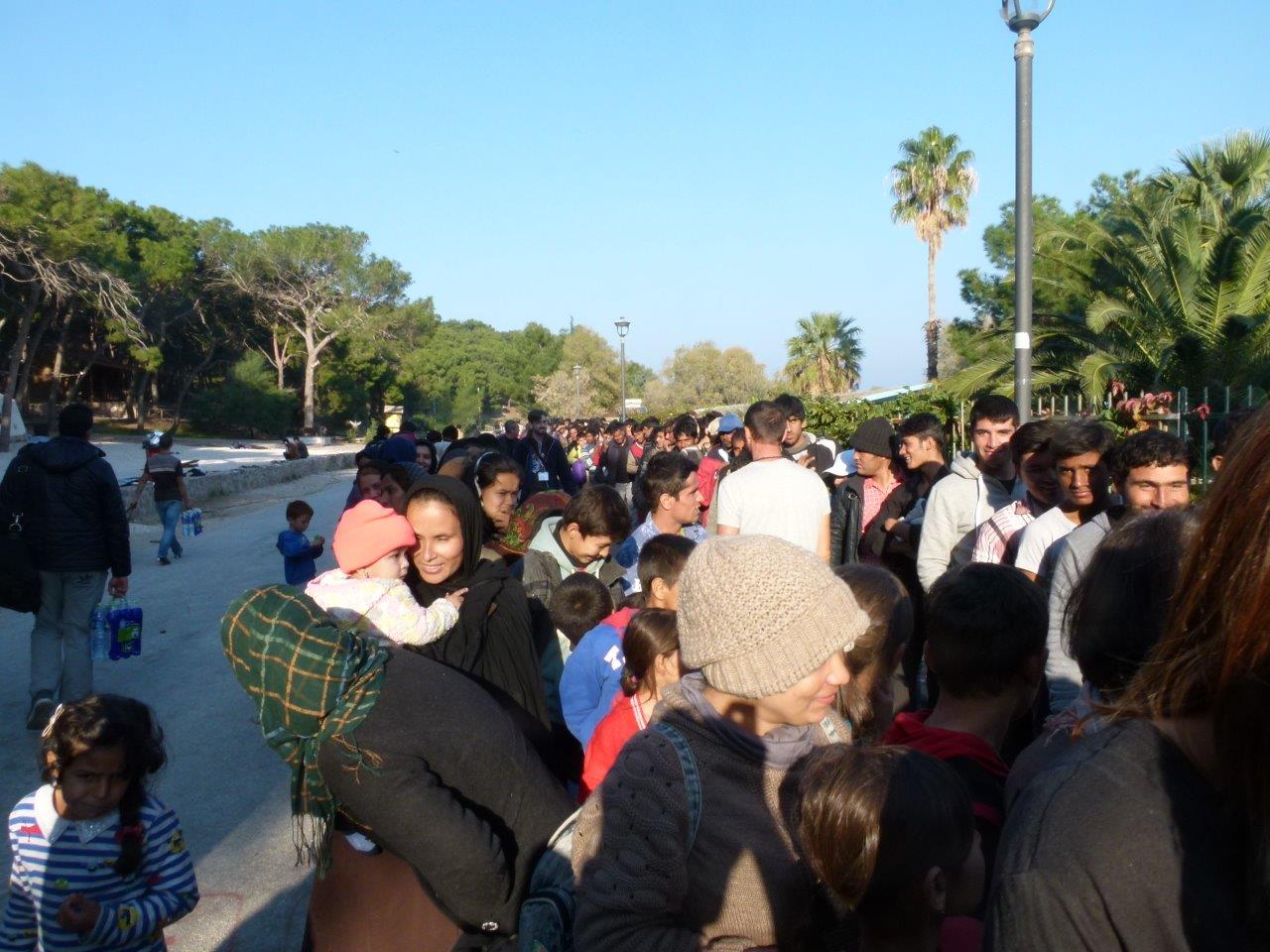
Wie viele müssen Essen bekommen / how many have to be fed?
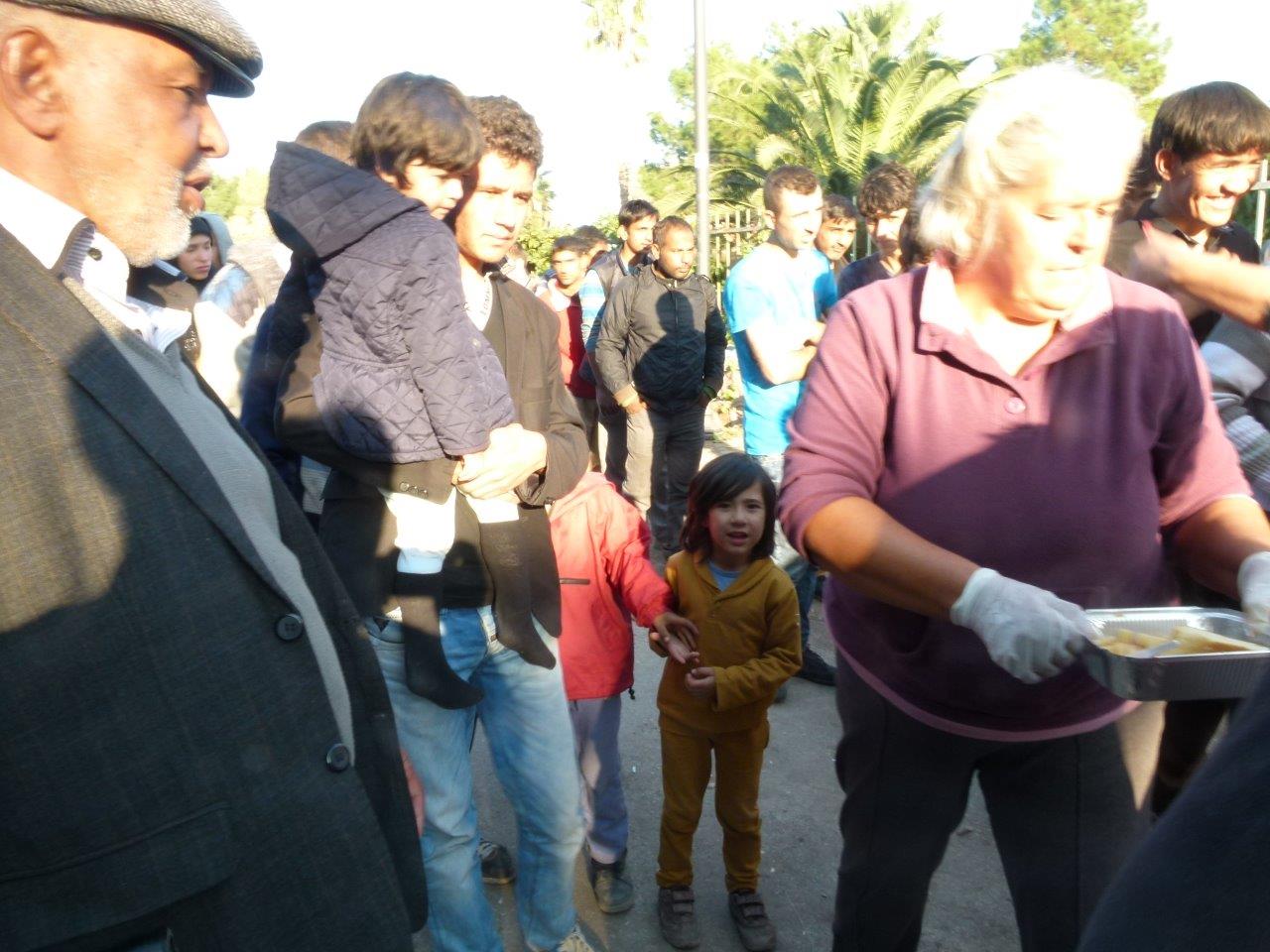
Was ist in diese Gesichter geschrieben? /
What is written in these faces?
EU commissioner tells Athens to speed up border controls
|
Kurzer Bericht meiner Reise nach Lesbos (08.01.16 bis 20.01.16) Ich war im November letzten Jahres auf Lesbos und hatte festgestellt, dass es an allem mangelt, besonders an Winterkleidung und Decken. Ich habe nach meiner Rückkehr mit Freuden in München und Blumenthal (in der Nähe von Augsburg) gesprochen und wir haben beschlossen, Sachen zu sammeln und eine eigene Lieferung nach Lesbos zu organisieren. Den Grundstock für unsere Lieferung bekamen wir von dem Verein Hanseatic Help e.V., der in Hamburg eine unglaubliche Arbeit leistet, zur Verfügung gestellt. Dafür sind wir sehr dankbar. Wir konnten diesen Grundstock in München mit selbst gesammeltem Material und weiteren Spenden noch deutlich erweitern. Wir haben eine Lieferung mit vor allem Kleidung und Schuhen (jeweils für Frauen, Männer und Kinder), Decken und Rettungsdecken zusammengestellt und dann alles von München aus mit zwei großen Sprintern (Lieferwagen) mit jeweils einem großen Anhänger (die Züge waren jeweils ca. 15 Meter lang) und einem LKW nach Lesbos gefahren. Insgesamt haben wir ca. 11 Tonnen an Material mit über 100 m^3 Volumen nach Lesbos gebracht, darunter auch mehr als 2000 Decken und ca. 6000 Rettungsdecken. Wir sind über Italien (Ancona) und Igouminitza, Piräus nach Lesbos gefahren, nicht über die Balkanroute. Wir waren dort für ca. 10 Tage und haben die Sachen an die verschiedenen Lagerhäuser verteilt. Da es an Transportkapazität mangelt, haben wir dann immer wieder Waren mit unseren Sprintern von den Warenhäuser an die verschiedenen Camps und an die anderen Stellen, wo Bedarf war, verteilt. Deshalb konnten wir einen guten Überblick über die Situation bekommen und mit vielen Volontären sprechen. Das was auf der Insel passiert, ist in zweierlei Hinsicht unglaublich: Zum einen sieht man, dass eigentlich fast gar keine staatlichen oder überstaatlichen Stellen irgendwo anzutreffen sind. Weder von griechischer Seite, noch seitens der EU oder UN ist viel zu sehen. Auf der anderen Seite sind permanent hunderte, ich schätze grob bis zu ca. 1000 Volontäre, permanent auf der Insel, die für ca. 100 NGOs oder selbstständig tätig sind und die alles tun, um den Flüchtlingen zu helfen. Diese Volontäre kommen aus der ganzen Welt, überall aus Europa, aus den USA, Kanada, Australien, Malaysia und sicher noch aus vielen anderen Ländern. Es sind auch viele Griechen sehr engagiert in der Hilfe für die Flüchtlinge, obwohl viele ja selber zur Zeit sehr schwerwiegende Probleme haben. Die Helfer kommen aus allen Altersgruppen. Es sind sehr viele junge Leute dabei. Die Volontäre organisieren die Rettung auf dem Wasser, wenn Boote in Seenot sind, nehmen die Flüchtlinge am Strand in Empfang, laufen ins Wasser (auch in der Nacht bei Schneetreiben, wie vor kurzem, als wir da waren), wenn die Boote an den Strand kommen, um dann Kinder und Frauen aus den Booten herauszutragen (da es immer wieder zu schrecklichen Unglücken am Strand kam, wenn Boote durch die Brandung umgeworfen wurden), es gibt Ärzte und Krankenschwester am Strand, die erste Hilfe leisten, sie versorgen die Flüchtlinge, die eigentlich alle unterkühlt und völlig durchnässt sind, mit neuer Kleidung, organisieren den Transport in die Flüchtlingscamps, betreuen und verteilen die Flüchtlinge in den Camps, geben weitere Kleidung aus, kochen für die Flüchtlinge und geben das Essen aus, betreuen die Kinder, sie organisieren die Lagerhäuser, sortieren die angelieferten Hilfslieferungen, es gibt eine Gruppe, die die Kleidung der Flüchtlingen wäscht, so dass sie wieder verwendet werden kann, die Volontäre säubern die Strände und sammeln die tausenden von Schwimmwesten ein, die immer wieder liegen bleiben, … Alle Volontäre, die ich getroffen habe, sind hoch motiviert und begegnen den Flüchtlingen auf eine sehr menschliche und mitfühlende Weise. Das ist der erste Kontakt der Flüchtlinge mit Europa und den Europäer! Viele arbeiten jeden Tag bis zur kompletten Erschöpfung. Die Stimmung ist enorm energiegeladen und trotz der schwierigen und sehr belastenden Lage, sehr positiv. Zusammenfassend kann ich sagen, dass ich jeden Glauben in die staatlichen Institutionen (vor allem die europäischen Institutionen) in Lesbos verloren habe und dafür aber den Glauben an die Menschheit allgemein zurückgewonnen habe. Das was man da sieht, gibt eine Idee, wie es auch auf unserer Welt aussehen könnte. Wenn wir uns alle so im Alltag verhalten würden, dann hätte wir eine andere Welt. Das zeigt: Die Probleme lassen sich lösen und wenn wir so an die Sachen herangehen würden, würden viele Probleme gar nicht erst entstehen. Die Volontäre kommen und gehen, viele bleiben nur eine oder mehrere Wochen, einige bleiben für Monate. Alle nehmen sicher etwas mit nach Hause zurück. Diese Erfahrungen werden bleiben und ihre Wirkungen entfalten. Das gibt mir Hoffnung. Ich glaube, man kann sagen, dass dies ein wichtiger Punkt in der Zeit ist: In Lesbos wird gerade Geschichte geschrieben, auch wenn das bisher noch keiner so sieht. Einer meiner Freunde, die aktiv geworden sind, ist Christian Schnurer, ein Aktionskünstler aus München. Er ist auch mitgefahren und hat geplant, zusammen mit der Stadt München, ein Kunstprojekt mit den Schwimmwesten aus Lesbos zu machen. Auf der Insel liegen ca. 400.000 bis 500.000 Schwimmwesten, die oft eigentlich nicht einmal wirkliche Schwimmwesten sind, sondern Fälschungen, die zum Teil gar keinen Auftrieb geben. An einer Stelle, nicht weit von der Nordküste, liegt eine Müllkippe, ein „Gebirge“ aus Schwimmwesten, eine absurde Szenerie. Diese Schwimmwesten und die vielen wertlosen Plastikboote (bis zu hundert kommen am Tag an) und die dazugehörigen Außenbordmotoren, die teilweise noch im Meer liegen, sowie der viele andere Müll, stellen eine große Belastung für die Insel dar. An eine geordnete und umweltgerechte Entsorgung des Mülls ist überhaupt nicht zu denken. Wahrscheinlich werden die Schwimmwesten irgendwann verbrannt werden. Wir haben dann eine Woche mit den verschiedenen Stellen in Lesbos und Athen verhandelt, um von diesen Schwimmwesten einige erhalten zu können. Unsere Ansprechpartner waren: Der Bürgermeister, der stellvertretende Bürgermeister, der Pressesprecher des Bürgermeisters, die Assistentin des Bürgermeisters, die Rechtsanwältin der Verwaltung, der Chef des Zollamtes und eine weitere Mitarbeiterin des Zollamtes, das Umweltministerium in Athen und ein spezieller Berater des Umweltministers, … Nach diversen Schwierigkeiten konnten wir dann 70 m^3 an Schwimmwesten mitnehmen und haben diese mittlerweile nach München gebracht. Bei diesen Gesprächen haben wir auch einen ganz guten Eindruck bekommen, wie die offizielle Seite denkt. Die offiziellen Stellen leben in ihrem eigenen Universum und die Volontäre und NGOs tun das auch. Zwischen den beiden Universen gibt es nur wenig Berührungspunkte und leider auch nur wenig Austausch. Die offiziellen Stellen in Lesbos fühlen sich im Stich gelassen und ich kann das gut verstehen. Die Probleme sind enorm und Hilfe können sie wahrscheinlich weder von Athen, noch von der EU erwarten. Viele Menschen in Lesbos arbeiten im Sommer im Tourismus und haben jetzt Angst, dass diese Jobs verschwinden, wenn der Tourismus einbricht, was sicher auch zu erwarten ist. Das alles spielt sich im Umfeld einer dramatischen und anscheinend ausweglosen Wirtschaftskrise ab. Hilfe von der EU könnte natürlich geleistet werden, ist aber nicht zu erwarten. Warum eigentlich? Statt dessen verlangen viele Politiker jetzt, dass die Grenzen „dicht“ gemacht werden sollen. Das heißt, dass die griechischen Stellen die Boote nicht an die Strände lassen und sie wieder zurück schleppen, wenn sie sich der Küste nähern. Als ich abgeflogen bin aus Lesbos (am 20.01.16) sind eine Frau und ein kleines Kind am Strand an der Nordküste an Unterkühlung gestorben. Sie kamen ganz „normal“ mit dem Boot an und konnten auch von herbeigerufenen Ärzten nicht mehr gerettet werden. Jedem muss klar sein, was es heißt, diese Boote wieder zurück aufs Meer zu schleppen. Was sind wir für eine Gesellschaft in Europa, die eine solche Forderung an andere Menschen (in diesem Fall die griechische Küstenwache) stellt? Blog zu diesem Projekt: http://www.salvavida.eu/ Andreas Müller-Hermann |
Short report of my trip to Lesbos (08.01.16 until 20.01.16) I was in November last year in Lesbos and had perceived, that there was especially a lack of winter clothes and blankets. After my return I spoke with my friends in Munich and Blumenthal (in the vicinity of Augsburg) and we decided to collect things and to organise an own transport to Lesbos. The basic materials we received from the organisation Hanseatic Help e.V. which does an incredible job in Hamburg. We are very grateful to them. We managed to add to this basic materials a considerable amount of materials all collected in Munich and in addition through further donations. We have put together a delivery consisting especially of clothes and shoes (respectively for women, men and children), blankets and rescue blankets and then we drove everything in two large sprinters (delivery trucks) each with a large trailer (they were about 15 meters long) and one truck to Lesbos. Altogether we had brought to Lesbos about 11 tons in materials with about 100 m^3 in volume, among them about 2000 blankets and about 6000 rescue blankets. We drove via Italy (Ancona) and Igouminitza, Piraeus to Lesbos, that is not the Balkan route.
We were there for about 10 days and have distributed the things to various storage houses. Since there was a lack of transportation possibilities, we have distributed with our sprinters over and again the materials to the various camps and other places, where something was needed. Consequently we could gain a rather good overview of the situation and talk with many volunteers. What is happening on the island is in a double sense unbelievable: on the one hand, it can be seen that there are practically nowhere in sight any state or international state organisation present. This applies to both the Greek side as well as to the side of the EU or United Nations. On the other side there are permanently hundreds if not up to 1000 volunteers who work for about 100 NGOs or independently and who do everything, in order to help the refugees. These volunteers come from all parts of the world, from everywhere in Europe, from USA, Canada, Australia, Malaysia and certainly from other countries. There are also many Greeks who engage themselves in the help of the refugees, despite many of them having to cope at this time with their own grave problems. The helpers come from all age groups. There are among them many young people. The volunteers organise the rescue missions on the water, that is when boats are in sea distress, or receive the refugees along the beach, run into the water (even when at night there is a snow drift, as was most recently the case, when we were there) when the boats come towards the shore, in order to carry children and women from the boats to the shore (that it comes always to horrible accidents when the boats capsized due to a strong surf), there are doctors and nurses on the beach who give first aid and take care of the refugees who are all under cooled and completely wet by giving them new clothes, and organise the transport into the refugee camps, where they receive further clothes, cook for the refugees and distribute food, look after the children, organise the storage houses, select things out of the delivered air materials. There exists a group which washes the clothes of the refugees, so that they can be used again, while other volunteers clean the beaches and collect the thousands of life jackets which are left always lying around... All the volunteers whom I have met are highly motivated and meet the refugees with in a very humane and friendly way. That is the first contact of the refugees with Europe and Europeans. Many of them work throughout the entire day until exhaustion. The atmosphere is full of energy and despite the difficult and very demanding situation very positive. As a first resume, I can say, that I have lost my belief in state institutions (in particular the European institutions) in Lesbos and regained instead my belief in humanity. What one sees there, does give one an idea how it could look like in our world. If all of us would conduct ourselves in everyday life, then we would have a different world. It shows: the problems can be solved and if we would tackle things in this way, then the problems would not even arise. The volunteers come and go, many stay for only one or several weeks, others stay for months. All take home something invaluable. These experiences will remain and unfold their impact. That gives reason for hope. I believe to be able to say that this is an important point in time: history is being written in Lesbos, even if not everyone is able to see that right now. One of my friends who became active, is Christian Schnurer, an action artist from Munich. Er came along with us and plans, together with the city of Munich, to create an art object made out of life jackets from Lesbos. On the island there are lying about 400 000 to 500 000 life jackets, which are often in reality not real life jackets, but fake ones, which do not carry a person at all when in the water. At one spot, not far from the northern coastline, there exists a rubbish dump as a mountain made out of life jackets: an absurd scenery. These life jackets and the many worthless plastic boats (almost one hundred arrive per day) and the outboard motors attached to them, lie around partly in the sea and pose a huge burden for the island. It is impossible to think at this stage of an orderly rubbish removal and an environmental protection. Probably at some stage these life jackets shall be burned. We have then negotiated for one week at various places in Lesbos and Athens, in order to receive some of the life jackets. Our negotiation partners were: the mayor, the vice mayor, the press secretary of the mayor, the lawyers of the administration, the director of customs and other officials of customs, the Environmental Ministry in Athens and a special advisor to the Environmental Ministry.... After diverse difficulties we managed to take with us 70 m^3 m of life jackets and have brought them in the meantime to Munich. During these talks we gained quite a good impression how the official side thinks. The official side lives in its own universe, and the volunteers and NGOs as well. Between these two universes there are only few common reference points and unfortunately hardly any exchange of information. The official side in Lesbos feels in having been left abandoned and I can understand that quite well. The problems are huge and most likely they cannot expect any assistance from Athens or from the EU. Many people on Lesbos work during the summer in the tourist sector and now fear, that their jobs shall disappear, in case that tourism breaks down which is certainly to be expected. All that is being played out in the context of a dramatic and apparently unresolvable economic crisis. Naturally help could come from the EU, but is not to be expected to be the case. Why not? Instead politicians demand that the borders are made „tightly“ sealed off. That would mean that the Greek sight would not allow the boats to dock ashore and instead tow them back if they approach the coast. When I flew out of Lesbos (on 20.01.16) a mother and her small child did ashore due to having been under cooled. They had arrived quite 'normally' with a boat but could not be saved by the doctors which were called for assistance. It must be very clear to everyone, what it would mean, to take back these boats into the open sea. What society is this Europe, which makes such a demand of other people (in this case the Greek coast guard)? Blog to this project: http://www.salvavida.eu/
Andreas Müller-Hermann |
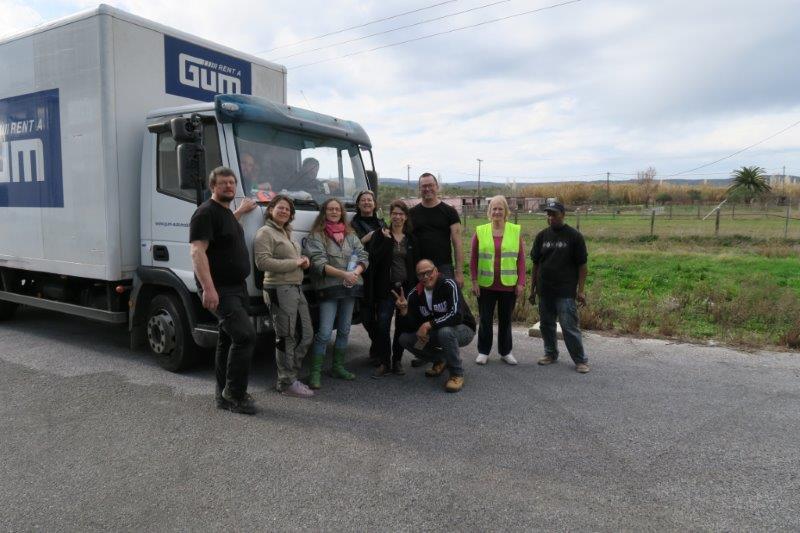
Teils des Teams für den Lastwagen Konvoi / Team members of transport expedition

In Lesbos
|
|
Griechische Helfer / Greek volunteers |
|
Lagerhallen / storage halls |
|
|
|
|
|
|
|
|
|
|
Der Skandal mit den Schwimmwesten / the scandal with life jackets
Wie ist es möglich mit Scheinschwimmwesten nicht nur Geld verdienen zu wollen, sondern das Leben der Flüchtlinge damit bewusst in Kauf zu nehmen.
How is it possible for people attempting to earn not only money by selling fake life jackets, but to risk consciously the lives of the refugees?
|
|
|
|
|
|
|
|
|
|
|
|
|
|
Von Müllhalden zu Rettungsaktionen auf hoher See From rubbish heaps to rescue actions on high sea |
Kathimerini: Refugees face ‘appalling conditions’ in Greece says aid group
20 October 2016 | 18:39 | FOCUS News Agency
« Are we all strangers - answer to Bauman's thesis | Political and philosophical appraisal »


